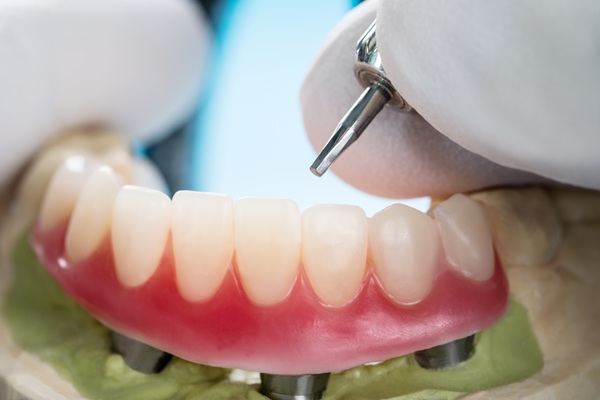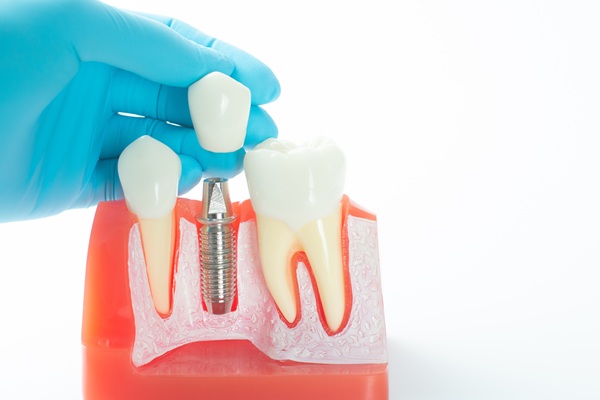5 FAQs About Scaling and Root Planing From a Periodontist

Scaling and root planing from a periodontist may seem like an intimidating and invasive procedure, but it actually causes minimal discomfort. Read on to learn more. It is helpful to understand answers to frequently asked questions when preparing for scaling and root planing procedures from a periodontist.
5 Common questions about scaling and root planing from a periodontist
Many patients have questions about what exactly scaling and root planing entails, the procedure’s safety, and how it differs from the regular dental cleaning process. The following are answers to these questions, as well as more information about scaling and root planing from a periodontist.
1. What is scaling and root planing?
Scaling and root planing, also called deep dental cleaning, is a periodontal cleaning procedure used to treat a severe form of gum disease known as periodontitis. This in-office, non-surgical procedure involves cleaning beneath the gum line to remove plaque, tartar, and bacteria that contribute to gum disease.
2. How are scaling and root planing different from regular dental cleanings?
A regular dental cleaning involves cleaning the surface of teeth and along the gum line. A scaling and root planing cleans deeper and goes beneath the gum line. Whereas a regular cleaning is performed more for preventive reasons, a scaling and root planing procedure is used as a treatment for periodontitis.
3. What does a scaling and root planing procedure entail?
There are two steps to scaling and root planing. The first is scaling; this step involves removing all plaque and tartar on teeth above the gum line and beneath the gum line. The second step is root planing. This involves smoothing and polishing the tooth roots to allow the gums to properly reattach to the root of each tooth. The procedure is performed one quadrant at a time. This may take place during a single dental visit or a follow-up visit may be scheduled to finish all four quadrants.
4. When is scaling and root planing necessary?
Scaling and root planing may be necessary if the patient has gum pockets that are deeper than 4 millimeters or shows other signs of periodontitis such as bleeding gums, gum discoloration, gum tenderness, and gum recession. A periodontist may conduct an oral examination and order dental x-rays before making a recommendation for a scaling and root planing procedure.
5. Is scaling and root planing safe?
Scaling and root planing are minimally invasive and generally considered safe. The dentist may use numbing agents to reduce any discomfort the patient experiences, but the effects wear off relatively soon after the procedure and most patients are able to drive themselves home afterward. There are very minimal risks, and most patients make a full recovery within a few hours after the procedure.
The benefits of scaling and root planing
The most notable benefits of scaling and root planing include improved periodontal health, an improved smile, long-term cost savings, and a reduced risk of tooth loss.
Improved periodontal health
The primary purpose and benefit of scaling and root planing from a periodontist is improved periodontal health. Periodontal disease can lead to symptoms such as swollen gums, gum tenderness, gum discoloration, deeper gum pockets, and gum recession, and scaling and root planing is often the first step to addressing these symptoms.
A more attractive smile
The focus of scaling and root planing is on improving the periodontal health of the patient. However, in doing so, many patients report a more attractive smile that improves their self-image. Specifically, this benefit results from addressing symptoms such as gum swelling, discoloration, and avoiding additional gum recession.
Long-term cost-saving benefits
Avoiding a scaling and root planing procedure most often leads to a worsening of gum disease symptoms and other oral health concerns. To address more severe issues, dentists typically need to perform more extensive and invasive treatment that is more costly for the patient.
Reduced risk of tooth loss
Tooth loss is often the inevitable result of periodontal disease that goes untreated. This occurs as a result of the continual weakening of the supporting structures of teeth (the gums and the underlying jawbone). Scaling and root planing help prevent the loss of teeth by cleaning beneath the gum line to remove harmful bacteria and tartar.
The bottom line
If you experience any symptoms of periodontitis, such as bleeding gums, gum tenderness, teeth sensitivity, deep gum pockets, and gum erosion, then contact our dental office today to schedule a visit.
Request an appointment here: https://corderoperiodontics.com or call Rafael E. Cordero, DDS PA at (561) 763-9221 for an appointment in our Palm Beach Gardens office.
Check out what others are saying about our dental services on Yelp: Periodontics in Palm Beach Gardens, FL.
Recent Posts
Periodontal health goes beyond periodontal treatment at the dentist's office and a consistent oral care routine. Increasingly, research is shedding light on the intricate connection between nutrition, lifestyle, and periodontal health.In this post, we explore the integration of nutrition and lifestyle into periodontal treatment, highlighting the transformative impact that it can have on preventing and managing…
Periodontal treatment from a periodontist is a great way to address a range of gum and jawbone concerns. They can also treat issues like missing teeth. This review discusses the various treatment options that are available for patients who consult a periodontist and highlights the signs that indicate a need to visit this specialist.Popular treatment…
A periodontist will examine your complete medical and dental history on your first visit to the office. This is to check if you react to specific medications and have any pre-existing disorders impeding your dental care. Your periodontist will then perform a comprehensive gum examination to look for signs or symptoms of illness.In certain situations,…
Part of having good oral health is avoiding periodontal disease and maintaining healthy gums. Unfortunately, gum disease is a common issue that people have, though it is preventable. You can take everyday steps to avoid problems with your gums. If you neglect these needs, you can experience severe consequences. You should understand periodontal disease and…


